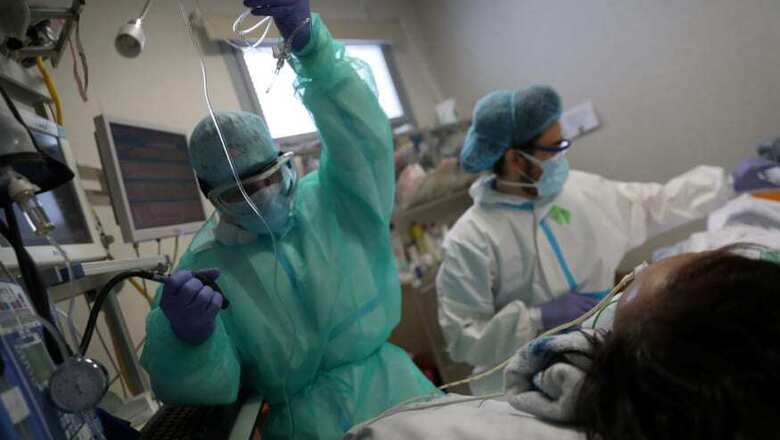
views
Notwithstanding findings of a large observational study published on Friday in The Lancet which concluded that there is no evidence to confirm the benefit of the globally sought drug hydroxychloroquine or HCQ against the novel coronavirus, the union health ministry has reiterated its recommendation and expanded its use for preventive treatment.
The Lancet study based on the records of nearly 15,000 patients who received the drugs and 81,000 who did not showed that the drug may instead do harm.
But the the country’s apex medical research body said that its latest recommendations were based on three studies that showed that the drug reduced viral load in laboratory settings and brought down incidence of SARS-CoV-2 infection among healthcare workers.
In the latest advisory, issued on Friday, the union health ministry said all asymptomatic healthcare workers involved in the treatment of Covid-19 infection, asymptomatic healthcare workers employed at non-Covid hospitals or non-Covid areas of Covid hospitals/blocks along with asymptomatic frontline workers, such as surveillance workers deployed in containment zones, be given HCQ for preventive care.
The advisory added that even paramilitary, police personnel involved in Covid-19 related activities and asymptomatic household contacts of laboratory-confirmed cases take HCQ.
The government also said that the drug should not be used on people with retinopathy, cardiac problems and Glucose-6 phosphate deficiency. The advisory also stated that an ECG may be done before prescribing HCQ and an ECG should be done in case any new cardiovascular symptoms occur during the course of the treatment.
The Lancet study on the safety and efficacy of HCQ has been touted as one of the biggest, multinational observational studies conducted till now. It found that the use of HCQ or chloroquine with or without an antibiotic such as azithromycin to treat Covid-19 was not associated with any benefit.
Instead, it showed an increase in irregular heartbeat or the risk of ventricular arrhythmias and also a greater risk of in-hospital death in Covid-19 patients.
The study’s conclusions were based on the analysis of data of 96,032 patients, of whom 15,000 were administered the anti-malarial drug. The study has asked for randomized controlled trials of the drug.
The demand for the drug had surged across the world after its use was championed by US President Donald Trump. Earlier this week, President Trump even told reporters that he was taking the drug every day. India exported the drug to USA and Brazil among other countries.
Citing studies that were the basis for expanding use of HCQ, the government advisory said that a retrospective case-control analysis at ICMR found that there is a significant dose-response relationship between the number of prophylactic doses taken and frequency of occurrence of SARS-CoV-2 infection in symptomatic healthcare workers who were tested for SARS-CoV-2 infection.
In another examination of three government hospitals, it was found that healthcare workers involved in Covid-19 care were less likely to develop the Covid-19 infection if they were using HCQ for prevention compared to those who were not using it.
“The benefit was less pronounced in healthcare workers caring for a general patient population,” the advisory said.
The advisory also cited an observational prospective study of 334 healthcare workers at AIIMS in New Delhi. Out of the 334 healthcare workers, 248 were given HCQ prophylaxis (median six weeks of follow-up) and it was found that those taking HCQ prophylaxis had lower incidence of SARS-CoV-2 infection than those not taking it.




















Comments
0 comment